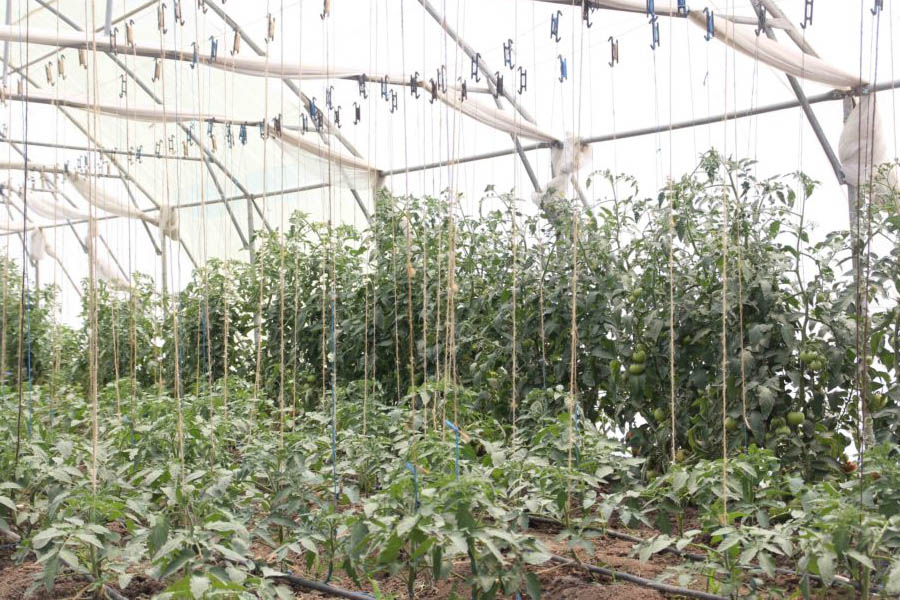Food security in Africa is in jeopardy due to climate change. Most people in the Democratic Republic of the Congo (DRC) live in rural areas and rely on agriculture for their livelihood. Thus, there is an immediate need to revamp agriculture in order to guarantee food security and sustainable use of natural resources. Farmers on small plots of land have used a variety of tactics and practices to adapt to the changing environment. The Democratic Republic of the Congo (DRC) is looking for viable options to mitigate the devastating consequences of climate change on people’s standard of living. Sustainable advances in agricultural, livestock, fishery, and forestry production systems, as well as enhancements in the livelihoods and incomes of rural people, have been credited, in part, to Climate Smart Agriculture (CSA). CSA is proven to do this while also bolstering resilience and aiding in climate change mitigation initiatives.

Climate change and agriculture in DRC
Slash-and-burn farming, which is popular in DRC’s forested regions, is an example of the country’s traditional agricultural practices. In addition, high-altitude volcanic mountain zones are often used for contour farming. Extensive agricultural systems are unsustainable because they increase GHG emissions and hasten deforestation as farmers seek for more farmable land. A wide variety of agroecological zones may be found across the nation, from tropical rainforests to highland terraces, savannahs, thick grasslands, and mountains.
Climate change will increase global temperatures, which will have a negative effect on the quality and production of crops used for food and economic security. These crops include coffee, soybeans, bananas, and plantains. Unlike other crops, rice production in the DRC may see an increase. Other crops planted in DRC wetlands are being replaced by rice due to its increased yield and resistance to the frequent flooding that now occurs even in dry seasons. Extended dry periods and unpredictable rainfall might have a significant impact on livestock, leading to significant animal losses and/or spoiling of livestock products in addition to endangering agricultural output.
How does Climate change impact agricultural activities?
Regional climate models of the DRC predict that an increase in temperature, a decrease in rainfall, and irregular or even extreme situations will inevitably lead to a significant decrease in agricultural production and yield, a greater sensitivity of crops to pest attacks, and a decrease in soil fertility. Pests spread as a result of climate change because of their ability to move from one place to another. Consistent with these theories, the most significant effects are the emergence of novel weed species, a decrease in agricultural productivity, and the advent of new crop pests. Rain-fed farming in eastern DRC has received a lot of attention because of the focus on lowering yields.
While some farmers may use crop rotation, fallow practice, or replanting the same kind of seed in response to a decline in yield, the vast majority do not. Additionally, they use the usage of suitable agricultural machinery such as tractors, farm implements, combine harvesters, and so on. Others, however, clear more land in the woods, increasing the forest’s vulnerability to climate change as a result of deforestation. Farmers in the DRC have a lower adaptive ability than their counterparts in other African nations. When compared to other farmers, those in the Democratic Republic of the Congo have more options when it comes to axes. Maybe it’s because they’re so close to INERA/Yangambi, the National Institute of Agronomic Studies and Research.
CSA technologies and Practices
Several methods are used by farmers in the DRC to boost output, adjust to potential futures of climate change, and lessen the impact of the country’s heavy carbon footprint. Forestry CSA techniques seek to use agriculture as a solution to minimizing deforestation, all while reducing agriculture’s carbon impact and fostering a more resilient and productive agricultural system. Due to the vast acreage of forested land in DRC, agroforestry has received widespread support from scientists. Low agroforestry adoption rates among smallholder farmers suggest ineffective extension service delivery of information about the practice’s many advantages and its role in mitigating the effects of climate change. Furthermore, government and non-government organizations’ technical and financial backing is vital to the sustainability of such a CSA method. However, dedication from all stakeholders (government, business sectors, NGOs, educational institutions, and farmers) is necessary from inception to execution if these aims are to be realized.
A number of projects addressing CSA practices were started in the eastern DRC. These include developing bio-fertilizers and bio-pesticides, recycling waste, using resilient crops, adaptive agroforestry tree selection, soil and water conservation strategies, assessing land use and land cover in wetlands, and more. Crop rotation, fallow practices, bio-fertilizers, bio-pesticides, mulching, various crop types, agricultural diversity, modifying planting dates, and bolstering nonfarm activities are some CSA methods in crop production mentioned in DRC.
Role of Tractors PK DRC
Tractors PK DRC sells Massey Ferguson tractors in DRC, New Holland tractors in DRC, combine harvesters, and other farm implements and agricultural machinery to farmers. Tractors PK’s capacity to provide tractors at cheaper pricing may be useful for the country’s smaller farms. Tractors PK is a tractor dealer in DRC that offers tractors and other agricultural machinery at costs that are reasonable for small-scale farmers. Now that they have Tractors PK, farmers in the DRC can kick back and take satisfaction in their work.